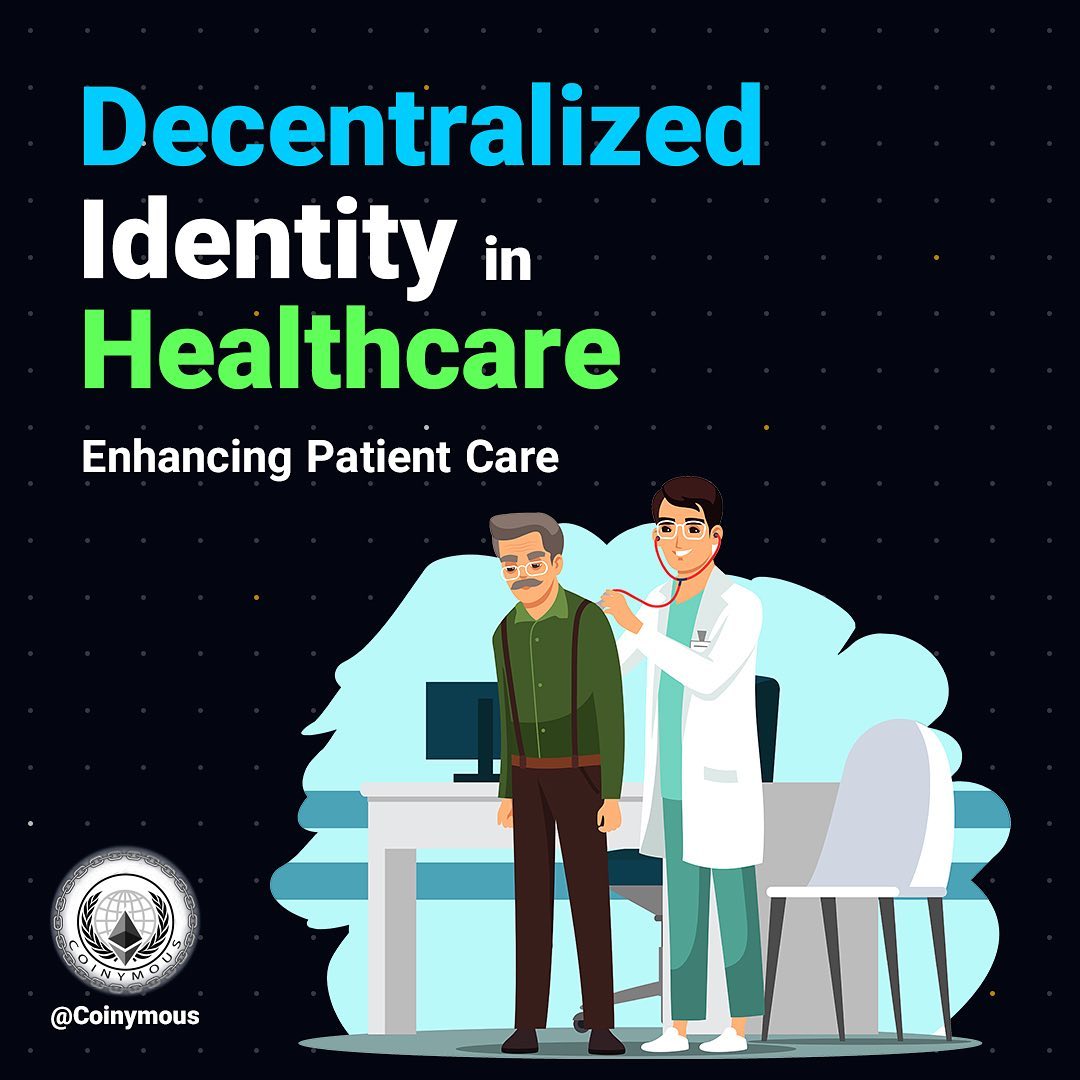Decentralized Identity in Healthcare: Enhancing Patient Care 🏥
Decentralized identity in healthcare revolutionizes patient care by empowering individuals to securely manage their own health information, enhancing data security, privacy, and improving interoperability for seamless information exchange among healthcare providers.

Introduction:
In recent years, the healthcare industry has witnessed a significant shift towards embracing innovative technologies to improve patient care. One such technology gaining traction is decentralized identity. With its potential to revolutionize healthcare, decentralized identity offers a secure and efficient way to manage patient data, enhance privacy, and empower individuals to take control of their health information. In this blog post, we will explore the concept of decentralized identity in healthcare and discuss its impact on patient care.
Understanding Decentralized Identity:
Decentralized identity refers to a digital identity framework that enables individuals to have control over their personal data, without relying on a centralized authority. Unlike the traditional model where healthcare providers store and manage patient data, decentralized identity empowers patients to securely store and manage their own health information using encryption and blockchain technology.
Enhancing Data Security and Privacy:
One of the main benefits of decentralized identity in healthcare is its ability to enhance data security and privacy. With traditional centralized systems, patient data is vulnerable to breaches and unauthorized access. However, decentralized identity ensures that patients have ownership and control over their data, reducing the risks associated with data breaches. Additionally, encryption and blockchain technology provide an added layer of security, making it extremely difficult for hackers to tamper with or manipulate patient information.
Improved Interoperability and Seamless Data Exchange:
Interoperability is a critical challenge in healthcare, as different healthcare providers often use incompatible systems, making it difficult to share patient information seamlessly. Decentralized identity addresses this challenge by enabling patients to share their health data securely and selectively with authorized healthcare providers. This not only streamlines the exchange of information but also ensures that healthcare professionals have access to accurate and up-to-date patient records, leading to better-informed medical decisions and improved patient care.
Empowering Patients:
Decentralized identity empowers patients by giving them greater control and ownership of their health data. Patients can choose which healthcare providers have access to their information, ensuring that their privacy is respected. Moreover, individuals can update their health records in real-time, providing healthcare professionals with the most accurate and relevant information. This increased empowerment fosters a collaborative relationship between patients and healthcare providers, leading to better engagement and more personalized care.
Challenges and Considerations:
While decentralized identity holds immense potential for revolutionizing healthcare, there are a few challenges and considerations to keep in mind. Adoption and integration of decentralized identity systems across healthcare organizations require significant coordination and investment. Additionally, ensuring data accuracy and integrity within decentralized systems is crucial to maintain trust and reliability.
Conclusion:
Decentralized identity is poised to transform the healthcare industry by enhancing patient care, improving data security, and empowering individuals to take control of their health information. As healthcare providers and organizations explore the potential of decentralized identity, it is essential to address challenges, collaborate with stakeholders, and prioritize patient privacy. By embracing this innovative technology, we can create a future where patient care is more personalized, efficient, and secure.